
5 Reasons Why A Timer Is Your Best Friend When Decluttering
Here are 5 reasons why using a timer for decluttering works so well, and is so effective, plus my two favorite timers for the doing the Declutter 365 missions.
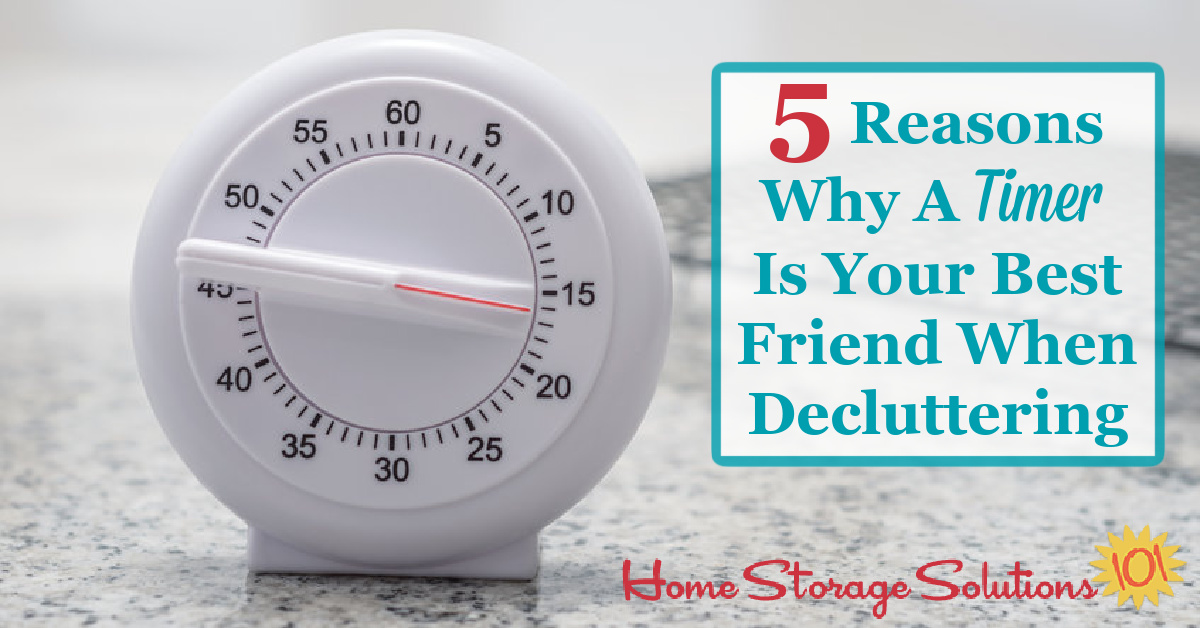
Are you looking for a simple solution to make sure you start decluttering, consistently? If so, then a timer should become your new best friend while doing your daily Declutter 365 missions.
Here's some reasons why I suggest regularly using a timer for these sessions, plus at the end of the article I’ve shared the two favorite timers I like to use for my own decluttering:
1. Trigger for "get ready, get set, go!"
Using a timer helps you to get to the "go" part of each daily mission. How? First, "getting ready" is your decision to do your daily Declutter 365 mission.
Next, setting the timer gets you "set" to actually begin.
Finally, when you start the timer going, and the time begins to tick down, it is the "go" signal to your brain, that is so deeply ingrained, like a habit, that you meet very little resistance and are able to actually start the session.
2. Increases your focus during each individual session.
Instead of wondering how long you'll need to work to hit your 5, 10 or 15 minute mini-goal, and continually watching the clock, which keeps you from focusing on your task, using a timer allows you to set it, and then forget it until it beeps, or otherwise signals to you time is up.
This gives you a focused intensity that watching the clock doesn’t allow you to have otherwise.
3. Increases your speed for small tasks, so they don't expand to fit a longer time period.
You can treat the timer as a way to do a decluttering sprint, where you're trying to play "beat the clock," and get a particular small area or limited type of item completely decluttered within this small period of time. This can keep you moving forward, and not slowing down to make the task expand to fit the time available. It can also add an element of fun and play to your decluttering session.
For example, giving yourself 15 minutes to declutter a specific drawer, and setting a timer to get it done within that amount of time, increases the likelihood you'll actually finish up the task in 15 minutes, instead of allowing this project to expand further, like without a timer where dealing with one drawer might end up taking 45 minutes.
(This concept of why decluttering in small steps is so effective was also discussed in the linked article, if you'd like to consider this concept further.)
4. Allows you to pace yourself for bigger tasks, without expecting completion, but instead celebrating incremental progress.
Above I mentioned that timers are helpful for helping you do decluttering sprints. In addition, a timer can also help you in the exact opposite way, when you're facing not a sprint, but a marathon decluttering task.
When facing a decluttering marathon you can't expect to run at a sprint the whole time and succeed, but instead with these bigger projects you've got to consider both pace and endurance to make sure you eventually cross the decluttering finish line.
If you're decluttering your entire closet, for example, each discrete small step may be considered a sprint, BUT the overall process of decluttering the whole closet is more like a marathon. Or you may also have some tasks where you have such a large accumulation of certain types of items, like piles of paper, that you can't accomplish sorting it all at once.
A timer can help you practice pacing yourself and celebrating your progress, without expecting completion in one timed session. That's because it's the repetition, again and again, of these small timed steps, that eventually leads you to complete these marathon tasks.
5. Makes you more realistic in your understanding of what you can accomplish within a given period of time.
As you continue to use your timer, decluttering session after decluttering session, a fifth benefit of your timer becomes apparent — and that is the ability to more accurately predict how long various decluttering tasks will take.
I am often a bad estimator of how long something will take. My estimations can be grossly off, in either direction, such as where I think a task will take me a few minutes and it ends up taking hours, or the opposite where I procrastinate because I assume something will take “forever” (say that word in your head in a whiny voice, to know how it sounds in mine), whereas when I finally do the task, I complete the whole thing in mere minutes.
Perhaps you identify with these gross under and over estimates as well? It is a common issue for many of us.
However, when you consistently use a timer for your decluttering tasks you start to get a better, and more accurate sense, of how long various tasks actually take. This allows you to predict how much effort and time various tasks will take, and those more accurate predictions make the psychology of decluttering so much easier to deal with.
That's because once you're more accurately predicting how long tasks will take you won't procrastinate as often when a task will in reality be quick to accomplish. Conversely, you won't set yourself up for failure in assuming you can declutter something in a few minutes when realistically it will take hours. Instead, with accurate predictions you can know when to try for a decluttering sprint, or when to take the decluttering marathon approach.
Remember The Key To The Declutter 365 Method When Using Your Timer: Include Both Sorting Time & Clean Up Time
Remember when you're doing any Declutter 365 mission with your timer that you need to devote time to both sorting and deciding, as well as additional time for cleaning up, as a part of any total session.
I've discussed this in more detail in my article all about how to declutter, but make sure you're using, in a typical 15 minute session, ten minutes for sorting and deciding, and the last five minutes of the session cleaning up from the session, so you're always making progress (however small it may be) without leaving behind a big mess.

My Favorite Timers For Decluttering
As you can see I'm a huge fan of using a timer for each decluttering session, and therefore I've also tried quite a few timers as I've worked on various Declutter 365 missions in my own home.
With all that practice here are my two favorite timers:
First Place: Hexagon Rotating Timer
This timer is simple and fun to use. It comes with certain preset timer amounts, including 5, 15, 30, 45 and 60 minutes, and it's easy to set by rotating the timer to one of the preset times.
Once the timer has gone off turn off the timer chimes by turning back to the clock setting.
This timer works best on a flat surface so bring it with you wherever you're decluttering and place it on a flat surface or the floor, to alert you when your session is over.
Not only do I use this timer when I'm decluttering, I keep it at my desk and use it for work related tasks as well.
One downside of my hexagon rotating timer is that it doesn't have a ten minute preset, so if you want to stick to exactly 15 minutes for your total decluttering session you have to remember to start your five minutes of clean up about ten minutes in. (This has become basically second nature to me, but it does take practice when you're getting used to it.
Second Place: Smart Phone Timer
If my hexagon rotating timer isn't handy my (close) second place favorite timer to use when decluttering is the timer that comes with my smart phone.
Often we carry our smart phones with us everywhere anyway, and you can set this timer for any time period you want, down to the hour, minute and even second. In addition, you can also set the tone when it ends to be a wide variety of sounds.
Other timers can work as well, from kitchen timers, egg timers, microwave timers, and more! So whatever you've got that works for you, grab a timer and begin using it today for your daily Declutter 365 missions.
Join The Daily Declutter 365 Missions Today & Get Started With Your Small Decluttering Steps!
I created the Declutter 365 missions to be done 15 minutes at a time, using a timer, for the reasons I explained above.
So why not adopt both the use of a timer for your clutter clearing, and the simplest and most comprehensive plan available for decluttering your whole house, slowly over the course of the year, 15 minutes at a time!

If you haven't already, make sure to get your copy of this year's Declutter 365 annual calendar here (it's FREE!), find today's date, and set your timer to do the day's mission. Then, use the idea of get ready, get set, and go, along with all the other benefits of decluttering with your timer, to start making progress on a clutter free home today!

Your timer is just one of the recommended decluttering supplies you should gather when doing these missions, although it is certainly one of the most important. Here's my article with my list of the top 10 decluttering supplies, so check it out, as well as grab your free printable supplies list!

Some links on this page are affiliate links, meaning that if you purchase a product through them I receive a small commission which helps me provide this information to you for free, plus support my family. My integrity and your satisfaction are very important to me so I only recommend products I would purchase myself, and that I believe would benefit you. To learn more please see my disclosure statement.
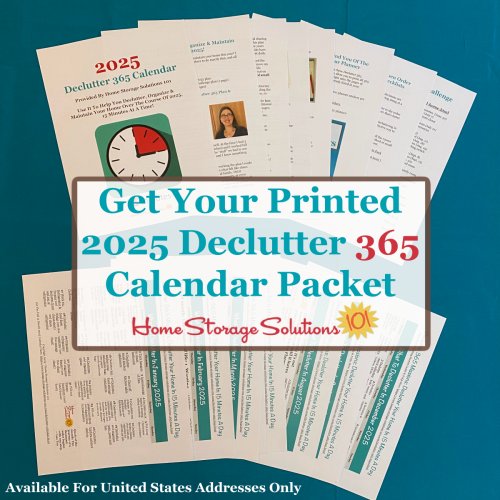
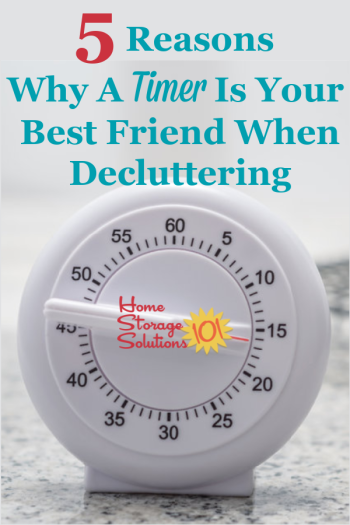
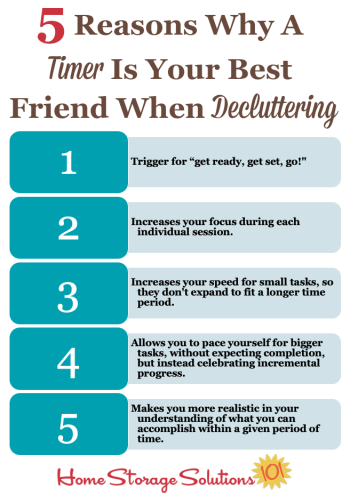
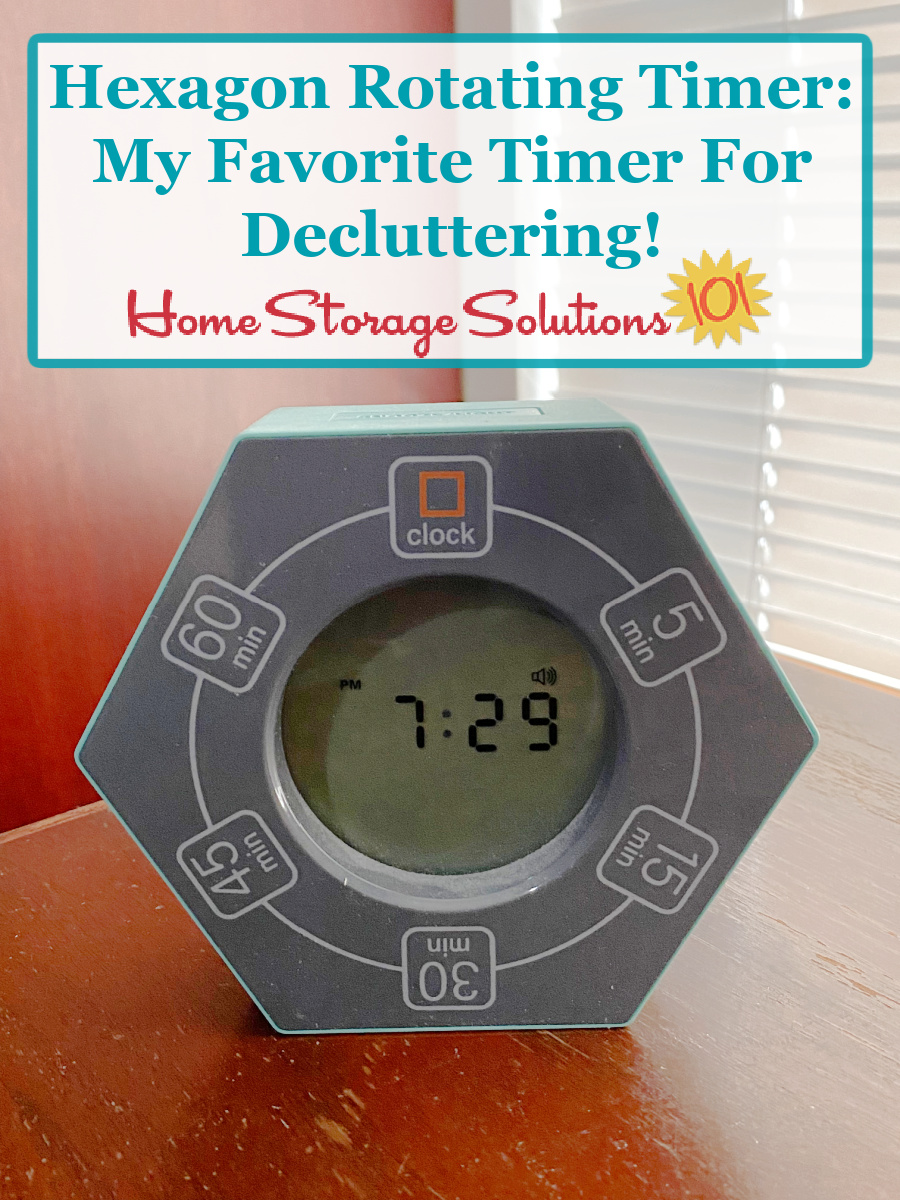
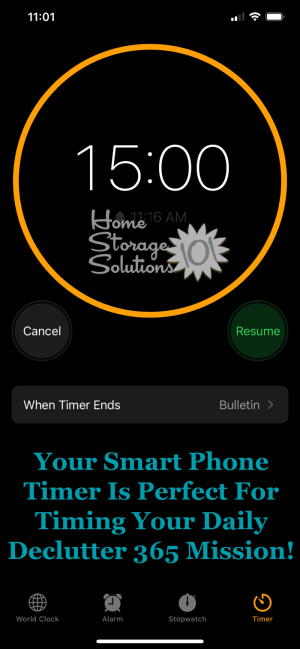
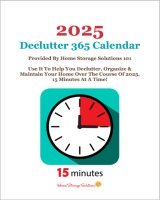
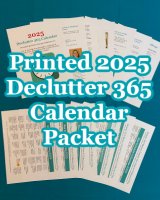









Share Your Comments, Tips & Ideas
I would love to hear from you, sharing your thoughts, questions, or ideas about this topic, so leave me a comment below. I try to always respond back!